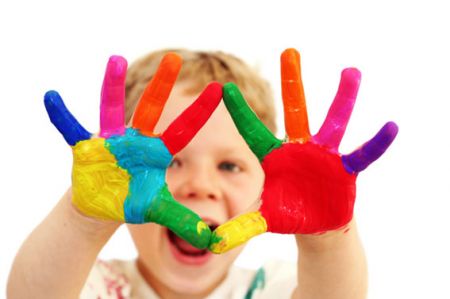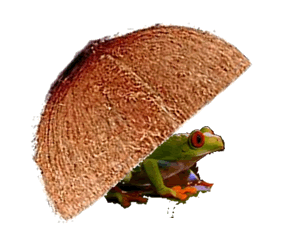Since childhood we have been systematically trained to obey what “they” say. Alea Nasihin reminds the katak we have become to step outside our tempurung.
I was recently watching a 5 year old child paint, when it occurred to me: we, as humans, are all born as creative souls. As children our basic nature is to enquire and create, to play and discover, to draw and scribble and run and dance. But somewhere along the line, we stop doing all of that, because society tells us that we need to be obedient, to sit down and listen to whatever the teacher tells us. We are brought up and told that smart people do Sciences not Arts, and that you’ll never make money unless you are a doctor or a lawyer or an engineer.
There is a childhood incident I recall vividly. My parents, in a fervour to ensure that I appreciated both sides of my cultural heritage (or, to put it simply, being kiasu), sent me to a Chinese-medium primary school in the morning and Islamic religious classes in the afternoon. Asked to do some colouring one day in the Chinese school, I proceeded to colour in my human figures with what I deemed (and still do, fake tan aside) a perfectly suitable colour for human beings – orange. This was however deemed unacceptable by the teacher, who promptly informed me that all humans were yellow and I had to re-colour my drawing.
But the story doesn’t end there. Now ingrained with the belief that all human beings had to be coloured yellow, I did just that when I was asked to do a drawing in religious class. It ended up with all my classmates laughing at me and telling me that humans were normally brown and my yellow figure looked like an alien.
This is a true story, and one that has been shared by another friend as well. Besides the obvious racial stereotyping issues which I’m not going to go into here, what irks me now on hindsight is the way the adults – formal educators, no less – felt the need to force a child to conform with what they believed was normal. And if nothing else, the incident illustrates how “normal” can be so different for two different people.
-

Our basic nature as human beings is to be creative and curious. Photo from http://www.childrenschoice.com/image/image_gallery?uuid=37055185-6d17-461d-800f-9cb562aec190&groupId=12675&t=1314195764876
I honestly believe that one of the most frustrating things is when you see a young child slowly start to mould himself or herself into what society desires. Not only is individual thought and expression not appreciated, it is often put down and ridiculed. What happens then is we all grow up to be a society of like-minded robots who are unable to engage or think critically, and who are too afraid to speak out. Whatever creativity and curiousity we possessed as children have been stamped out.
We have all heard the complaints about our education system – how it’s too exam-oriented, how the History syllabus is too skewed, how there is not enough emphasis on the English language. But besides that, how much of it is our own doing? Private schools and even kindergartens have reportedly become more “academically-focused” due to pressure from parents who want to see their kids recite the multiplication tables by age 5. Eager parents who want to ensure their children are not “left behind” fund the mammoth industry that is the tuition business. Teenagers are steered away from studies in the Arts and Humanities to more “useful” and “practical” areas like Accounting or Engineering. We have been told, time and time again, that we should listen to our elders and not ask so many questions. We are warned not to get involved in activism and politics for fear we lose our scholarships or jobs or get caught under the ISA. So, who do we blame when employers complain that our graduates lack critical, analytical and communication skills? Who do we blame when we have reproduced a society that is too afraid to speak up or to stand out? Who do we blame, when, in the end, we ourselves suffer?
Whilst conversing with a friend recently, he commented that a lot of what we know nowadays is autodidactic. And it’s true. I was blessed to be brought up in a household where magazines and books were a constant presence, and where my parents encouraged me to pursue activities outside of my academics. But I believe that at the end of the day it is up to us as individuals to make a conscious choice. We can sit under our figurative tempurung and believe everything our History textbooks tell us, or we can ask questions and do our own research. We can sit at the neighbourhood coffee shop and complain about the government and the system until the cows come home and we can whine and moan and say that our parents did nothing for us. Or we can take action to engage, and connect, and try and make a difference (like join UndiMsia). We need to stop blaming other people for putting us into the box, and just try our darn best to break out of it. The choice is ours to make, so we only have ourselves to blame.



Excellent read. Well said that a good part of the social stigma towards 'being different' stems from our society's point-finger culture, where is easier to say "not my fault, their fault" instead of admitting one was wrong, or judged wrongly. True that the education system plays a big part of it, though I personally believe that parents and families are the key factors in changing the stigma. Kids nowadays are seen by some as a trophy of sorts for parents to show off to their peers, relatives, colleagues etc. A kid who wants to do something different from the norm would be deemed as attempting something 'dangerous or unsecured' and that the parent, being more experienced and 'knows better', would steer them back onto the 'safe path'. While I respect all parents, for it is the worlds hardest job, fact is that times are changing and the people need to change with it.
Thank you for the great article. Looking forward to more of 'em from you. Cheers!
Excellent. Everybody needs to read this!
Woman! You are a Gem! See you soon!
A good piece of writing! I can easily relate to your childhood story! Social influence and conformity! You might find Stuart Hall's work on cultural theories quite interesting. Keep up the nice work.
Love it!
Good piece. The tempurung's been over our heads for far too long now.